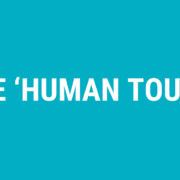Talent Discovery in Recruiting
Finding The Best Talent
Finding top talent is one of the biggest challenges faced by businesses today. With a competitive job market and rapidly evolving industry trends, identifying and attracting qualified candidates can be a daunting task for employers. However, there is a solution – talent management agencies.
Organizations can leverage their expertise, industry knowledge, and wide networks to find the best candidates for their job openings by establishing a strong partnership with a talent management agency. The key lies in effective communication, transparency, and collaboration throughout recruitment.
Talent management agencies are specialized groups that act as intermediaries between businesses seeking to fill positions and individuals looking for employment opportunities. These agencies are talent acquisition specialists, leveraging their industry knowledge and extensive networks to identify and attract qualified candidates.
Below, you’ll learn how talent agencies find the top talent and how you can get the maximum value from these agencies.
What Do Talent Management Agencies Do?
Talent management agencies find potential candidates based on their qualifications and experience. These agencies have access to a vast talent pool and utilize various resources to identify individuals who closely match the job requirements.
Talent management agencies go beyond considering qualifications and technical skills. They seek candidates who align with the organization’s culture and values. A good talent agency starts by interviewing business stakeholders to understand better how the role contributes to the organization.
What Traits Do Talent Management Agencies Look For?
Talent management agencies rely on a thorough screening to identify the most suitable candidates for their clients. During the screening process, these agencies typically look for a combination of hard and soft skills.
What are hard skills?
Hard skills refer to specific technical abilities and knowledge required to perform the job effectively. Examples may include proficiency in programming languages, expertise in marketing strategy, or fluency in a foreign language. These skills are typically assessed through resumes, portfolios, and technical assessments.
But being good at work is only half of what agencies need. Today’s companies also need someone who works well with others.
What are soft skills?
Soft skills, also known as interpersonal or transferable skills, are personal attributes that enable individuals to interact and collaborate with others effectively. Some common soft skills sought by talent management agencies include:
- Communication skills: Clear and effective communication is essential for collaboration, problem-solving, and building relationships.
- Adaptability: The ability to adapt quickly and thrive in a fast-paced and changing environment is crucial.
- Teamwork: Collaboration requires those who can work well with others, build effective relationships, and contribute positively to a team dynamic.
- Problem-solving skills: Employers value individuals who can analyze challenges, think critically, and propose effective solutions.
- Time management: Employers look for candidates who can manage their time effectively to meet deadlines and prioritize tasks.
- Leadership potential: Talent management agencies often seek candidates with potential for growth and development into leadership positions.
This comprehensive approach to screening ensures that businesses are presented with a shortlist of candidates who are not only qualified but also have the traits and characteristics that align with the company’s values and culture. Different roles and companies have different needs.
The Importance of Industry Connections
One of the key advantages of working with talent management agencies is their vast network of industry connections. These connections are built over time and consist of professionals from various industries and backgrounds.
These connections include the top talent, which is often already actively employed. Therefore, you won’t find them readily available on job boards and social media. Talent agencies can identify these individuals and present them with an opportunity that might appeal to them.
Organizations might find these people independently, but contractural provisions might prevent them from contacting them directly. Because talent agencies foster these connections before your role opens, their legal requirements often differ.
Because of these pre-existing relationships, talent agencies fill roles faster with appropriate people. They attend job fairs and networking events to build these connections, something that organizations don’t always have the time or resources to do.
Leveraging Digital Tools
Agencies rely on a wide range of digital tools. These include tools for tracking applicants, analytical tools, and software that assists the hiring process. We’ll go through each of the three below:
- Applicant Tracking Systems (ATS)
ATS software allows talent agencies to automate and centralize the entire recruitment process. ATS enables talent agencies to post job openings, receive applications, screen candidates, and manage all candidate information within one platform. With the modern scope of AI, these systems will filter out candidates based on the organization’s preferred skills and word usage.
- Data Analytics Technology
Another digital tool that talent agencies utilize is data analytics technology. Modern HR tech can access large data sets to identify candidates with the skills you seek. This data-driven approach allows talent agencies to decide who to include in their talent roster.
This talent roster can then be returned to, like an email list, and checked to see their interest in new opportunities. This accessible database enables any talent acquisition specialist to easily identify potential candidates, avoid questionable hires, and produce reports based on that data.
- Onboarding Software
Talent management agencies assist in the onboarding process, often providing (or suggesting) software to automate your hiring. The onboarding process is similar to the ATS system; only it assists in informing employees about the company, getting their signatures on important legal documentation, and (sometimes) managing payroll.
Evaluating Candidates
During the interview process, talent acquisition specialists use various techniques to evaluate candidates. Here are some common evaluation concerns of talent agencies:
- Behavioral questions to gauge how candidates have handled specific situations. These questions provide insights into a candidate’s problem-solving skills, ability to work under pressure, and adaptability.
- Relevant industry experience is a key factor that talent agencies consider when evaluating candidates. Relevant experience in a particular field enhances a candidate’s chances of fulfilling the role’s demands successfully.
- Interpersonal skills are crucial in today’s collaborative work environment. These skills are essential for creating a positive work culture and fostering productive collaborations.
- Culture fit is important for talent agencies when evaluating potential hires. Candidates with a background or alignment with the company’s values, culture, and mission are considered more valuable assets than those without such qualifications.
Through a thorough evaluation process focusing on industry experience and interpersonal skills, talent agencies can identify the most qualified candidates for their clients.
Need Professional Help?
A talent management agency is built to provide expert guidance on finding the right fit for your organization. With their assistance, organizations can focus more on day-to-day operations, growing their business while talent specialists leverage their deep talent pools.
Rainmakers is one company that can help you find top-performing salespeople with a solid combination of hard and soft skills. Request an invite today to see how we can help your company find someone who can make it rain.










